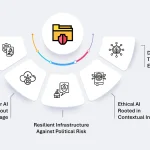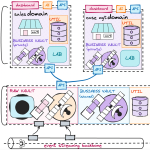
When it comes to the future of business, the platforms that power technology will be critical to your success. As a platform owner, you should be aware of the challenges that may be faced and consider the benefits that the technology will bring to your company. These include the level of openness and the modularity of the platform’s boundaries. In addition, you should monitor the external environment to stay updated on new standards, legislation, and technologies.
A platform is an ecosystem of services, applications, and devices that bring together groups of users in industrial organizations, information systems, and two-sided networks. A platform provides a common environment for the development of software and hardware. It is one of the fastest growing and dynamic services in the industry. All the brands that are featured on a platform share the same environment. They are considered complementary products. However, some platforms are more suited for one industry than others.
Some of the platforms used by technology are cloud-based, software stacks, and open source software. These are typically built on an API gateway that provides functions such as load balancing, latency reduction, and rate limiting. Applications are also developed on these platforms, and may incorporate an operating system, databases, or APIs. To make things even more complicated, these platforms may be built with multiple layers of security. Various types of security systems may be used with these platforms.
Another important aspect of a platform is its lifecycle. As the technology advances, it becomes essential to create a platform that will remain relevant to the user. A platform owner needs to take into consideration the end-user hierarchy and design. This means they need to consider how they plan to monetize their platform. Some may choose to charge a subscription fee, while others may opt to charge transaction fees or charge a percentage of profit. In addition, they should consider the existing systems. Existing databases may be siloed, while operating systems might be outdated.
Platforms may also be regulated in terms of their use and ownership. The platform’s owner should consider the openness of its policies. For example, it may be difficult to sell a digital health tool if it is owned by the government. The government may have the resources to develop the technology, but it does not have the money to pay for it. It is vital for platform owners to have a clear and defined governance structure to protect the interests of both the technology and the users.
In addition to platform owners, the ecosystem’s ecosystem also involves other entities. Platforms include mobile operating systems and environments, as well as cloud platforms. These may have specialized APIs for app developers. Other types of platforms include web servers, web application servers, and content delivery networks. Finally, publishing platforms include media and documents. Some are internal to organizations, such as document management systems. And they are also used to publish web content and multimedia.









